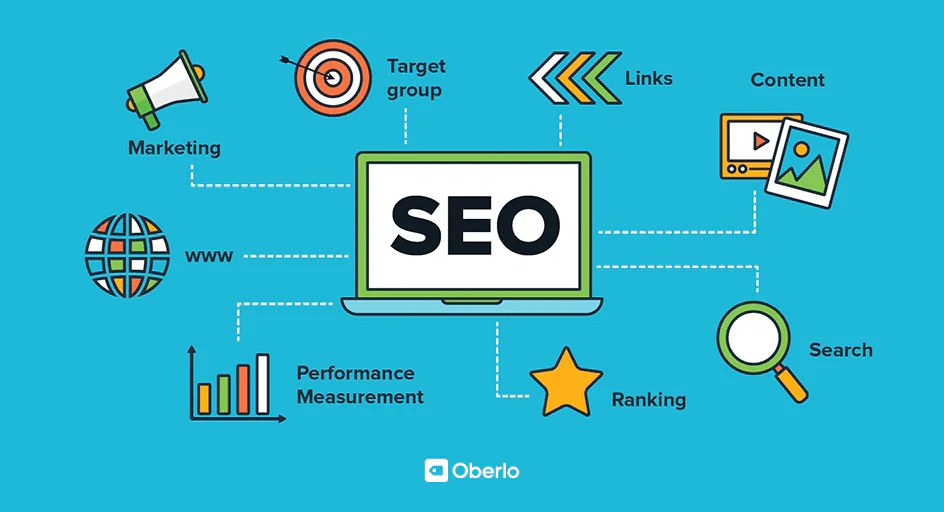Comprehending the Role of Individual Experience in Modern SEO Practices
In an era where digital existence can make or break a service, understanding the crossway in between individual experience (UX) and modern SEO practices is extra important than ever before. As search engines progress, they significantly prioritize websites that provide seamless, engaging experiences to users. Just how do these aspects exactly affect search rankings?
The Development of SEO
For many years, the landscape of seo (SEARCH ENGINE OPTIMIZATION) has actually undergone significant makeover, reflecting the dynamic nature of digital modern technology and user actions. Initially, search engine optimization was mainly regarding keyword padding and link-building methods, concentrating heavily on manipulating search engine formulas to boost site rankings. However, as online search engine became much more innovative, these strategies began to lose effectiveness and significance.

In addition, mobile optimization and voice search have actually become indispensable elements of search engine optimization approaches. With the proliferation of smart devices, ensuring sites are mobile-friendly has actually ended up being a requirement. Voice search, driven by online aides like Siri and Alexa, has actually further changed SEO practices towards natural language handling and conversational content.
Fundamentally, the evolution of SEO reflects a wider pattern in the direction of boosting individual complete satisfaction by lining up digital content with the nuanced assumptions of modern-day customers.
Trick UX Elements in SEO
In the world of search engine optimization, crucial customer experience (UX) aspects are essential for boosting both individual contentment and search engine rankings. Central to this is the simplicity of navigation, which ensures customers can without effort find info without unnecessary clicks. A well-structured navigation system enables search engines to index pages more properly, adding to greater exposure. Furthermore, mobile responsiveness is essential in today's electronic landscape, as a considerable part of web traffic originates from mobile gadgets. Sites optimized for mobile usage not only foster a smooth user experience but likewise line up with Google's mobile-first indexing approach.
Clear call-to-action (CTA) buttons assist users in the direction of desired activities, improving conversion rates. Access can not be neglected; making sure that web content is easily accessible to individuals with disabilities widens reach and complies with internet criteria. Incorporating these UX components successfully sustains SEO initiatives by advertising customer retention and assisting in search engine understanding of site web content.
Effect of Site Rate
While often undervalued, the effect of site rate on user experience and Search engine optimization can not be overstated. A slow-loading website can lead to raised bounce prices, as users are likely to desert a website if it takes more than a couple of secs to lots.
Moreover, website rate directly affects conversion rates and user fulfillment. By resolving these technological elements, sites can enhance their speed, thus improving customer experience and boosting their Search engine optimization performance. Eventually, investing in site rate is investing in both customer fulfillment and search engine visibility, essential components in the electronic market.
Mobile-Friendliness Value
Adjusting to mobile-friendliness has become a crucial element of efficient SEO techniques. As mobile phones increasingly dominate internet use, search engines like Google have moved towards mobile-first indexing, suggesting the mobile variation of a website is focused on in ranking formulas (seo adelaide). Mobile-friendliness is not just a pattern yet a requirement in optimizing a site's search engine performance

Additionally, mobile-friendliness effects local SEO considerably. As individuals usually search for local information on-the-go, having a mobile-optimized website enhances presence in regional search outcomes, driving foot web traffic and conversions for businesses. Web sites that fall short to prioritize mobile-friendliness threat losing out on beneficial website traffic, as users are less most likely to engage with websites that are challenging to browse on their mobile gadgets. For that reason, incorporating mobile optimization right into search engine optimization strategies is crucial for sustaining affordable benefit in the digital landscape.
Enhancing Navigating for SEO
As companies identify the need of mobile-friendliness in SEO, one more pivotal element emerges: enhancing navigating - seo adelaide. Reliable navigating is vital as you can try this out it directly influences user experience (UX), which online search engine increasingly prioritize. A well-structured internet site makes sure that customers can easily locate the web content they are seeking, reducing bounce prices and increasing dwell time, both of which are critical search engine optimization metrics
To enhance navigation, sites must embrace a sensible hierarchy that guides users effortlessly via content. This includes clear, concise menu tags and an instinctive layout, which collectively enhance the individual journey. Employing breadcrumb trails can further assist users in comprehending their location within an internet site, promoting a sense of orientation and control.
In enhancement to aiding UX, structured navigation enables internet search engine crawlers to index content a lot more effectively, enhancing exposure in search engine result. Carrying out internal linking approaches can likewise strengthen search engine optimization by dispersing web page authority and promoting content discoverability. Moreover, ensuring navigation is responsive throughout gadgets assurances that individuals take pleasure in a regular experience, necessary in today's multi-device globe. Ultimately, enhancing navigation is not just concerning aesthetics; it is a tactical technique to maximizing both individual engagement and online search engine efficiency.
Verdict
Integrating individual experience right into modern-day Search engine optimization techniques is critical for enhancing search engine rankings and improving internet site efficiency. As search engines focus on individual intent, Recommended Site critical aspects such as website rate, mobile-friendliness, and user-friendly navigation play a vital duty in meeting user assumptions.
In the world of search engine optimization, vital individual experience (UX) aspects are crucial for boosting both user satisfaction and search engine helpful site rankings. Integrating these UX elements efficiently supports SEO efforts by promoting individual retention and assisting in search engine understanding of website web content.
As users commonly search for regional info on-the-go, having a mobile-optimized site enhances exposure in neighborhood search outcomes, driving foot website traffic and conversions for businesses.Including individual experience right into modern SEO techniques is critical for maximizing search engine rankings and boosting site performance. As search engines prioritize individual intent, vital components such as site speed, mobile-friendliness, and intuitive navigating play a vital duty in meeting customer expectations.